Trump administration insists politics won't play into timeline for coronavirus vaccine
Operation Warp Speed chief says a pre-election vaccine is "extremely unlikely."
The Trump administration's top health officials and advisers this week adamantly insisted political motivations won't play into the race to develop a coronavirus vaccine after the Centers for Disease Control and Prevention notified states to be ready to distribute one to high-priority groups as soon as Nov. 1 -- two days before the presidential election.
The CDC deadline has fueled concerns among Democrats and some health officials of political pressures to fast-track vaccine approval at the expense of public safety as President Donald Trump continues to tease the vaccine's arrival while campaigning for reelection.
"We remain on track to deliver a vaccine before the end of the year and maybe even before November 1," Trump told reporters on Friday evening at a White House briefing. "We think we can probably have it sometime during the month of October."
The Trump campaign late Friday also released a new ad campaign called "Great American Comeback," pushing the promise of a vaccine and kicking off by saying, "In the race for a vaccine, the finish line is approaching."
"I think what's happening is you're gonna see tremendous growth in the very near future. We're rounding the curve. We're coming up with vaccines," Trump said Friday in the Oval Office while touting job numbers. "And the vaccines are gonna come out soon and the therapeutics are continuing, and that's why we're having the kind of numbers we have."
But Senate Democratic Leader Chuck Schumer on Thursday said the public should be cautious the Trump administration may influence the FDA's decision to approve a COVID-19 vaccine earlier than is safe for political gain.
"Too much of the evidence points to the Trump administration pressuring the FDA to approve a vaccine by Election Day to boost the President’s re-election campaign. This raises serious safety concerns about politics, not science and public health, driving the decision making process," Schumer said in a statement Thursday. "All Americans want a safe and effective vaccine as soon as possible, but if these important life and death decisions appear political, it will only undermine Americans’ confidence in a vaccine and prolong the pandemic."
Dr. Paul Offit, a professor at the University of Pennsylvania and member of the FDA's vaccine advisory committee, told The New York Times last month that people "should be" worried about politics influencing the vaccine timeline.
"There are a lot of people on the inside of this process who are very nervous about whether the administration is going to reach their hand into the Warp Speed bucket, pull out one or two or three vaccines, and say, ‘We’ve tested it on a few thousand people, it looks safe, and now we are going to roll it out,’" he said.
"They are really worried about that," Offit said. "And they should be."
In an excerpt of an interview with Dana Bash on CNN released Saturday, Sen. Kamala Harris, the vice presidential nominee on the Democratic ticket, said she would "not trust Donald Trump" alone on the efficacy of a vaccine should it be available before Election Day.
When asked if she would get the vaccine if it was approved and distributed before the election, Harris said:
"Well I think that’s going to be an issue for all of us. I will say that I would not trust Donald Trump and it would have to be a credible source of information that talks about the efficacy and the reliability of whatever he’s talking about. I will not take his word for it."
Addressing criticism that the administration's timetable on a vaccine might be politically motivated, Trump said he wants a vaccine as soon as October "not because of the election" but "because we want to save people."
"It will be delivered, in my opinion, before the end of the year," Trump said at a campaign rally in Latrobe, Pennsylvania, to dozens of unmasked supporters packed together Thursday night. "But it really might even be delivered before the end of October. How would you like that? Wouldn't that be nice?"
Ultimately, the timeline of the ongoing late-stage vaccine trials is not determined by Trump or his administration. Instead, the timeline will be determined by how rapidly the trials recruit volunteers and how many of those volunteers become infected. Then, independent monitoring boards will make a determination about whether there's sufficient data to recommend FDA authorization.
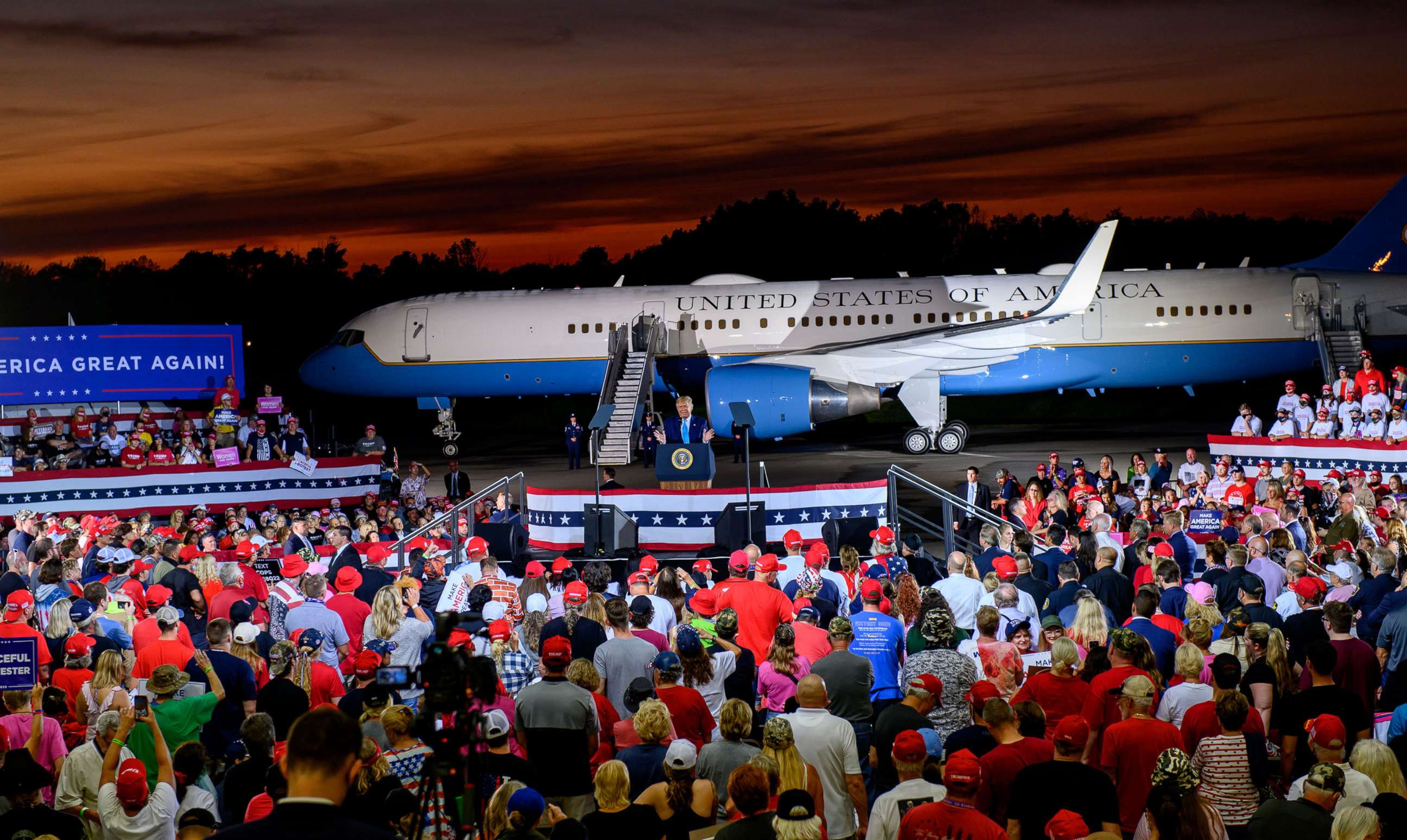
While several experts who the president has tasked with working on vaccine development have not completely closed the door on the possibility of a vaccine in October, other officials have said that a vaccine is more likely after the election. Distributing it presents another set of hurdles, but it's reasonable to have states prepare for distribution earlier, they say.
Timeline on track for a vaccine in late 2020 or early 2021, chances of early vaccine "possible, but not probable"
Surgeon General Jerome Adams on Friday morning, presented with the mixed messages coming from the Trump administration about whether a vaccine could be ready in time for the November election, told ABC's "Good Morning America" there's been "no contradictory information."
"We've always said that we're hopeful for a vaccine by the end of this year or the beginning of next year," Adams said. "On the chance that the vaccine could be available early, and Dr. [Anthony] Fauci and Dr. [Moncef] Slaoui it's possible but not probable. We want to make sure states are available to distribute it, hence November 1st recommendations from the CDC just in case it's ready to quickly get it to the people who most need it."
Fauci, the director of the National Institute of Allergy and Infectious Diseases, said one day earlier that any talk of a COVID-19 vaccine being available by late October or November are "guesstimates," that are not impossible but unlikely.
"If you look at the projection of the enrollment and the kinds of things you'll need to get a decision about whether the vaccine is safe and effective, most of us project that that's going to be by November and December, by the end of this year," he told CNN.
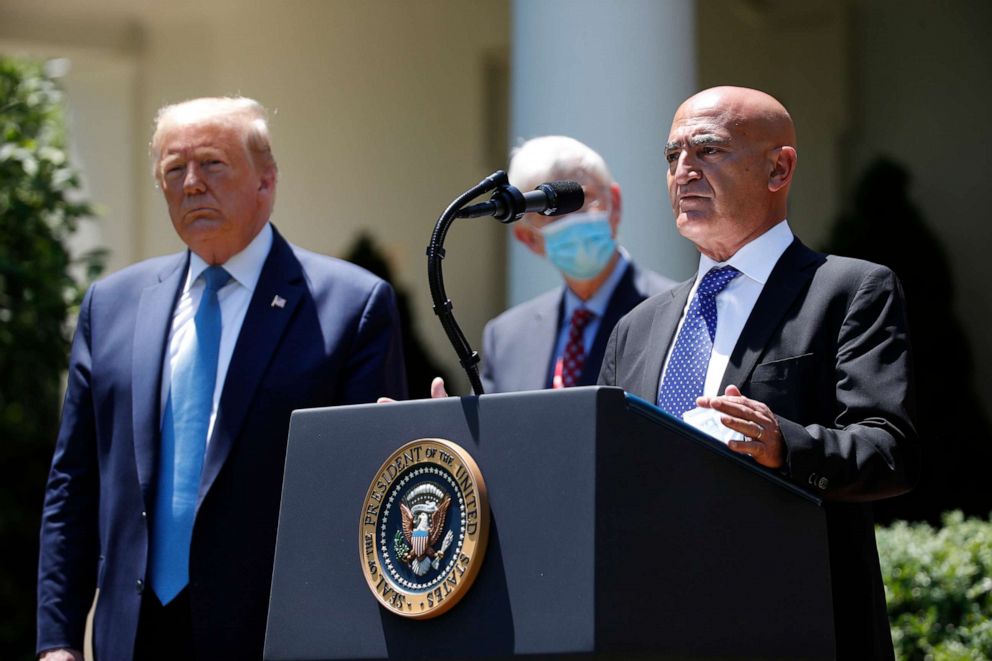
Slaoui, the chief scientific adviser to Operation Warp Speed, Trump's effort to accelerate production of a coronavirus vaccine, also told NPR Thursday the likelihood of having a vaccine for Election Day is "extremely unlikely, but not impossible," but that he "firmly" believes vaccine could be ready by the end of the year.
"There is a very, very low chance that the trials that are running as we speak could [be completed] before the end of October and therefore there could be -- if all other conditions required for an Emergency Use Authorization are met -- an approval," Slaoui said. "I think it's extremely unlikely but not impossible, and therefore it's the right thing to do to be prepared, in case."
He added that immunizing the entire U.S. population could take until "the middle of 2021."
CDC asks states to be ready to distribute vaccine by Nov. 1
Three vaccine candidates are in the third and final phase of trials in the U.S., including one that could report sufficient data as soon as next month. Fauci and others have said they don't expect full results until later in the year and that it would still be months before a vaccine is approved and available to the general public.
So when CDC Director Dr. Robert Redfield sent a letter last week to health officials in all 50 states and territories asking them to prepare for a vaccine by Nov. 1, other health officials and Democrats raised concerns that safety measures could be bypassed and that the Food and Drug Administration, traditionally an independent agency protected from political influence, could be pressed to help Trump's campaign for reelection by delivering on a vaccine.
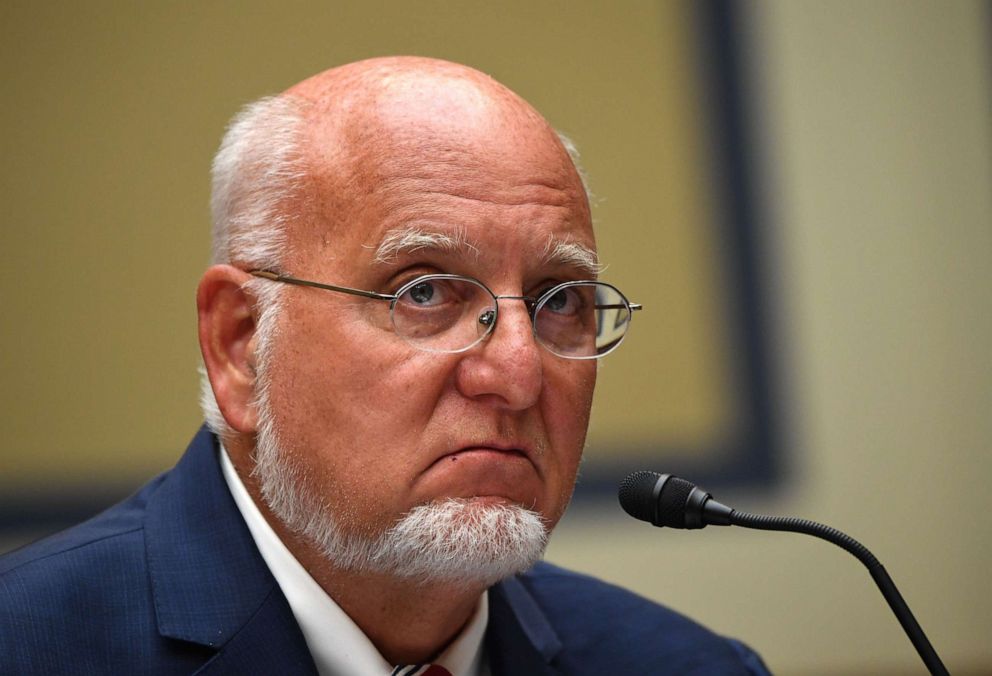
"CDC urgently requests your assistance in expediting applications for these distribution facilities and, if necessary, asks that you consider waiving requirements that would prevent these facilities from becoming operational by November 1, 2020," Redfield wrote, adding the expedited process will "not compromise" safety.
The letter comes as officials from the FDA, the agency tasked with approving the vaccine, have left the door open to granting a vaccine emergency authorization to some groups like health care workers before all the data is available, with Commissioner Stephen Hahn telling the Financial Times last month he would be willing to bypass the normal approval process while insisting it has nothing to do with pleasing Trump.
But Peter Marks, the FDA official in charge of the office that oversees vaccines the Center for Biologics and Research, told the Washington Post this week the government intends "not to give the American public anything less than a gold standard" but that it would be unethical to wait for full approval on a vaccine they believe is safe and effective while people are dying.
Politics not at play, officials say
Trump administration officials including FDA Commissioner Stephen Hahn have repeatedly pushed back on concerns the agency is losing its independence, saying the president wants to get a vaccine to the American people as quickly as possible but only if it's done safely. White House Press Secretary Kaleigh McEnany told reporters in a briefing Thursday "no one is pressuring the FDA to do anything."
Adams on Friday said it "won't be possible" to put politics ahead of science in the race for a vaccine because of the safeguards in place at the FDA.
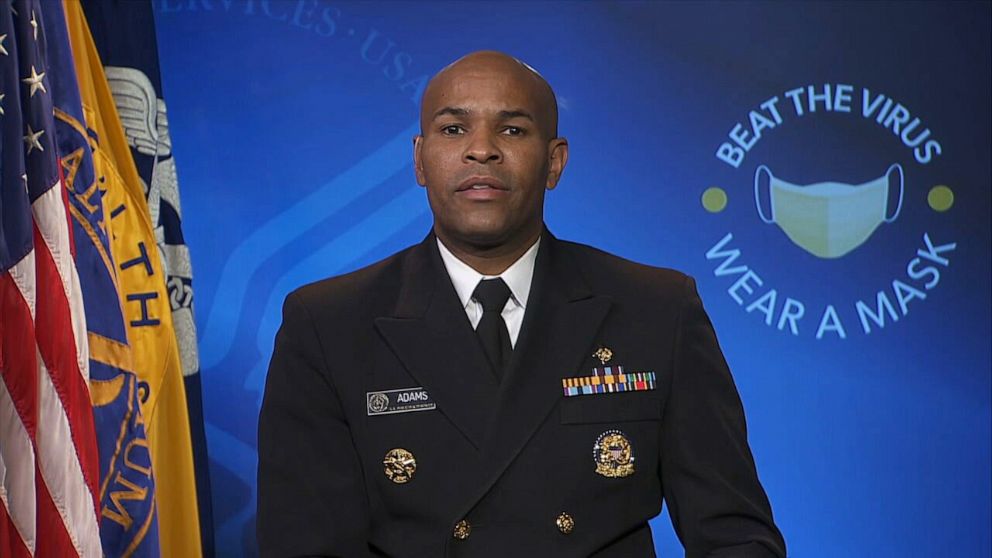
"What people need to understand is we have what are called data safety monitoring boards that blind the data and so it won't be possible to actually move forward unless this independent board thinks that there is good evidence that these vaccines are efficacious and have been through phase one and phase two trials and feel reasonably good about the safety so far," he said.
Fauci and Hahn have also said Americans shouldn't be concerned politics will play into the timeline as the FDA has plans to consult with independent advisory boards in place to ensure decisions are made based on the science and data from trials.
In an interview Friday, White House coronavirus response coordinator Dr. Deborah Birx said, "I know that everybody thinks that we’re rushing for a vaccine, and we are because we want to stop infections and we want to stop this ongoing mortality."
"There is one reason to have a vaccine and that’s so we can prevent ongoing infections and the mortality that comes from that," she added.
On the CDC Nov. 1 deadline, Health and Human Services Secretary Alex Azar told CBS Thursday it "has nothing to do with elections" but "has to do with delivering safe, effective vaccines to the American people as quickly as possible and saving people's lives," on par with comments Chief of Staff Mark Meadows made earlier in the week.
Slaoui, the vaccine chief, noted he only learned of the CDC letter asking state health officials to prepare for a vaccine by Nov. 1 in the news but has insisted he would quit his post if science does not carry the day.
"There is, for us, there is absolutely nothing to do with politics, and many of us may or may not be supportive of this administration. It's irrelevant, frankly," he said.
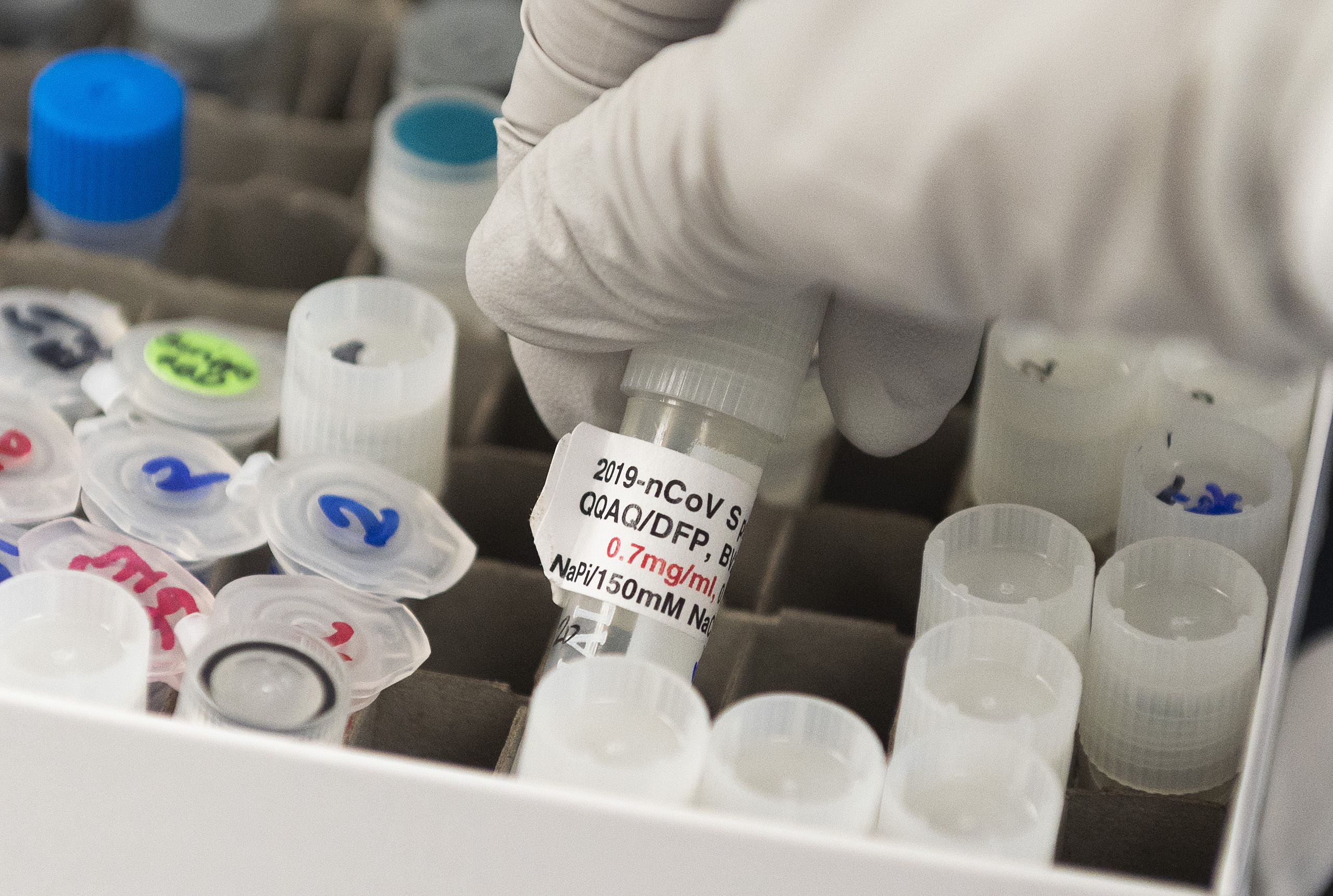
Fauci, too, has defended the integrity of the FDA in the process emphasizing that its decisions will be based on the best available data and that he would feel confident in taking a vaccine himself when it's approved.
Fauci's boss, National Institutes of Health Director Francis Collins, asked about the CDC preparing to distribute a vaccine as soon as October, said he doesn't think it's likely by then but the administration wants states to be prepared.
"This is like the Boy Scout motto, 'Be Prepared,'" Collins told CNN. "Even if it's very low likelihood, if everything happened to come together really beautifully and we had an answer by then and we knew we had a vaccine that was safe and effective, wouldn't you want people to be ready to figure out how to do the distribution? That's all that CDC is saying."
ABC News' Jordyn Phelps, Anne Flaherty and Averi Harper contributed to this report.




